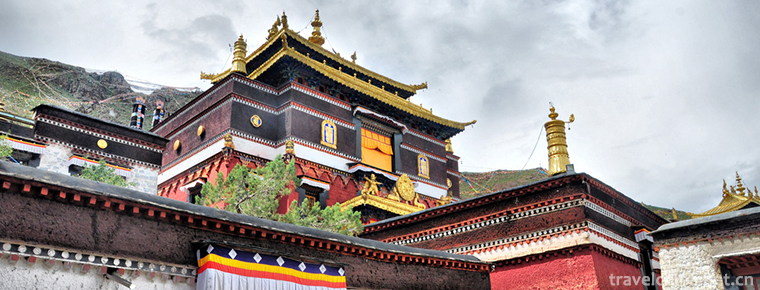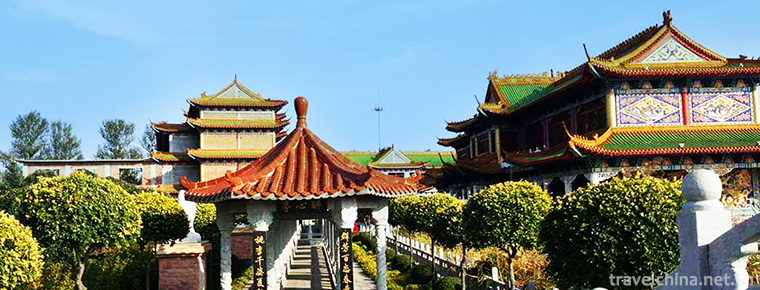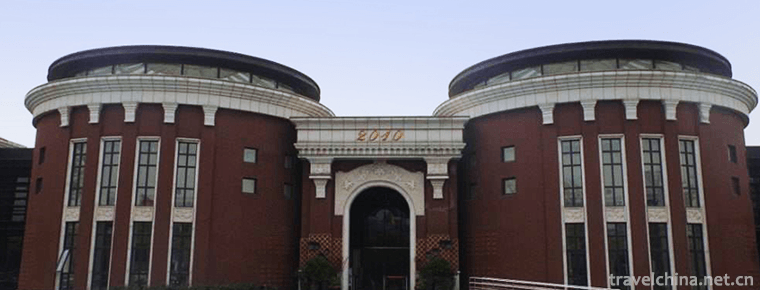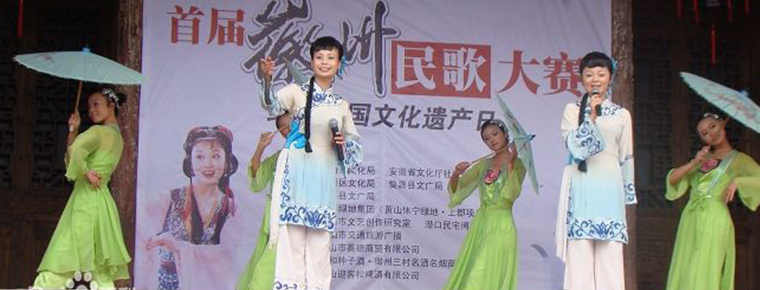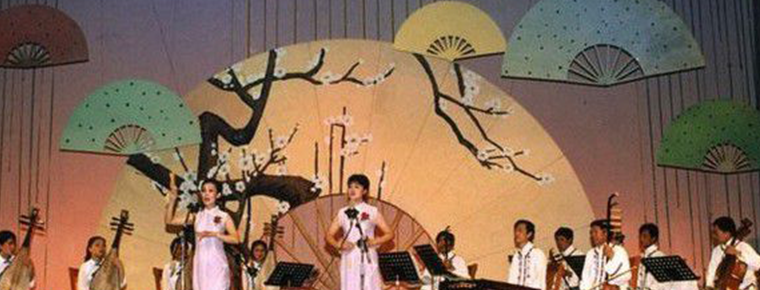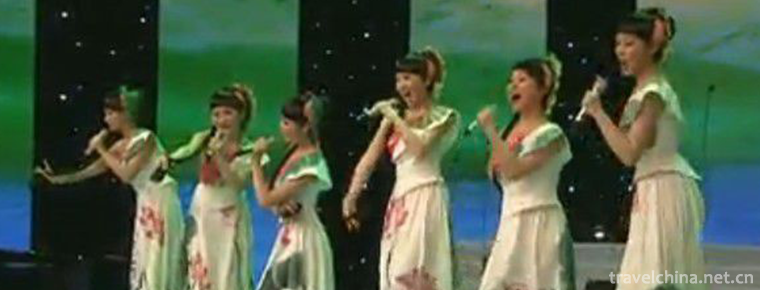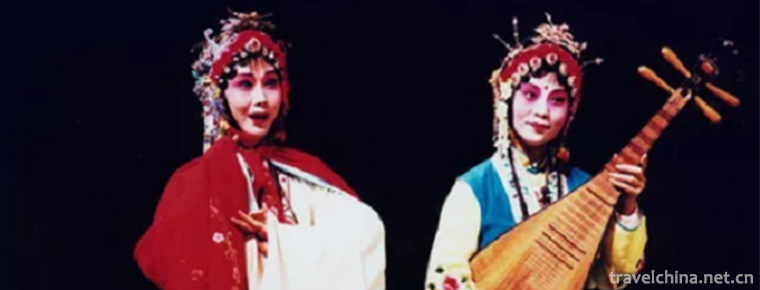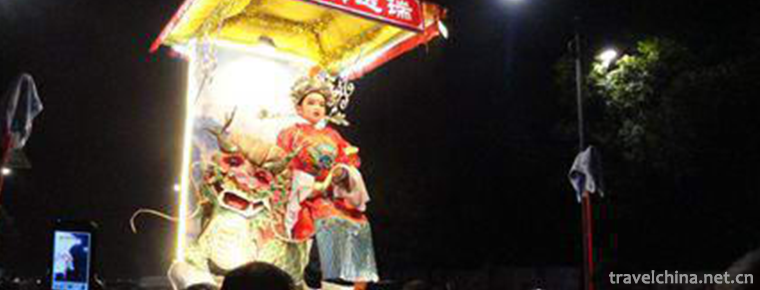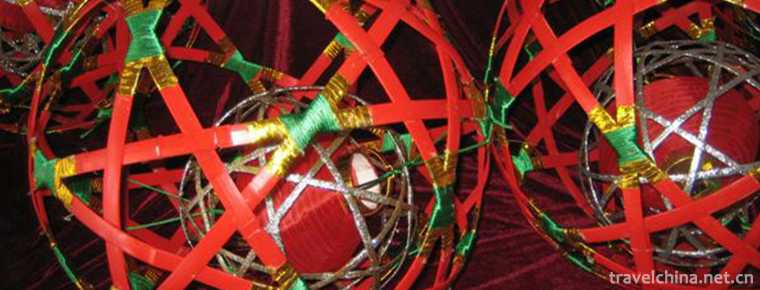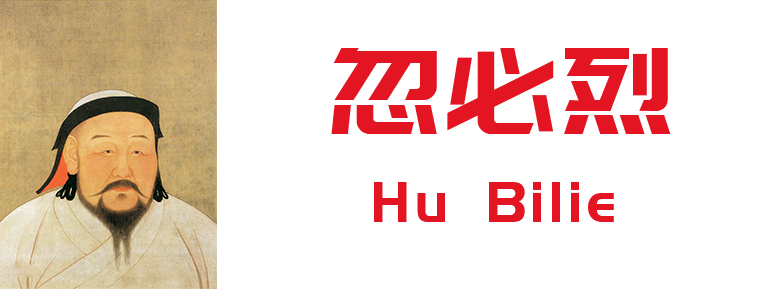Huaibei Bangzi Opera
Huaibei Bangzi Opera
Huaibei Bangzi Opera originally named Shahe Diao, also known as Shahe Bangzi, Anhui Bangzi Opera, and Henan Henan Henan Opera belong to a different genre, is popular in Anhui Province along the Huaibei area of traditional opera. Local people commonly known as "Gaobang", generally referred to as Bangzi opera.
Huaibei Bangzi's singing is lively, graceful and lively. It can express not only pleasant mood, but also generous and vigorous atmosphere. It has a strong local color. The empty words such as which, ah, roar, wow, ho, ah, etc. are lined in the cavity, which can decorate the singing cavity and produce the effects of full lyrics, clever pronunciation and witty tune.
On May 23, 2011, the Huaibei Bangzi Opera jointly declared by Suzhou and Fuyang, Anhui Province, was listed in the third batch of national intangible cultural heritage list with the approval of the State Council.
historical origin
During the Qing and Jiaqing Dynasties, Yang Tan, who sang Bangzi Opera in Shangqiu, Henan Province, came to the northern part of Anhui to sing and set up classes to pass on art. Influenced by local customs and folk art, the singing tune is different from the original Bangzi in Shangqiu, Henan Province, regardless of male and female actors, regardless of slate style, long and short sentences, and when singing, it is lined with many empty words, such as, ah, haw, haw, roar, bah, whine, which is formed by artists absorbing local minor changes, called "Shahe Tune". The aria of Shahe tune can be divided into 10 kinds, such as adagio, running water, 28, flying board and stomping. However, when singing, actors can change their minds and feelings according to the scenarios prescribed by the script. Henan Bangzi, also known as Shahe Bangzi, is used to attack the festival with jujube. Shahe Bangzi further developed, not only in the singing of clever words, melodious, but also pay attention to stealing words, flash board, flexible and changeable. Red-faced singing, absorbing the local drum calligraphy artists'singing methods, such as half-talking and half-singing, first voicing and then playing, dozens of lines after singing and dragging the tune to finish, not limited by 7 words, 10 words of lyrics. String accompaniment, using only a Beijing Hu (soft bow).
After the founding of the People's Republic of China, Bangzi in Shahe developed rapidly. In the 1950s, Fuyang, Suxian and Huainan established 18 professional theatre troupes at the district, county and municipal levels, which were named Huaibei Bangzi. In 1960, the Huaibei Bangzi Theatre Troupe of Anhui Province was established, and its development entered its heyday. All professional theatre troupes are staffed with directors. More than 700 traditional plays have been excavated and more than 500 performances have been performed regularly. Such as "Weishui River" (also known as "Wen Wang's Visit to Xian"), "Fire Son Capital" (also known as "Var Zidu"), and "Var Su Qin" (also known as "Hong Changfu") and so on. In Huaibei area, people in the field can sing some red-faced and Black-faced Bangzi operas.
Huaibei Bangzi has a certain blood relationship with Henan Opera, Shangdang Bangzi, Pu Opera and Laiwu Bangzi. It is mainly prevalent in some areas of northern Anhui, Eastern Henan and Northern Jiangsu. At its peak, almost all counties and counties had professional theatre troupes. Early and influential theatre troupes were established, mainly the turn-over troupe and the dawn troupe during the Anti-Japanese War.
Inheritance and protection
The Bangzi Opera in Suzhou has a brilliant time in history. In the 1950s, Zhang Fulan, an old artist, reported and performed in Jinjing. In 1987, the provincial TV station produced six series of TV dramas from the historical costume drama "Chu Gong Hate" created and performed by the Bangzi Opera Troupe in Suzhou. In October 1998, the large-scale modern drama "Towering Trees" created and performed by the Bangzi Theatre Troupe attracted great attention from all walks of life. In 1999, it won the provincial "Five-one" project award. However, in the following ten years, influenced by the great environment of the development of opera, many theatre troupes had almost no opera to perform. In order to survive, the performers mostly performed singing and dancing outside, and some young actors left one after another, which led to the lack of talent cultivation. Although the living environment of opera has improved since 2006, it still faces some difficulties. However, among the three Bangzi troupes in Suzhou, there are bottlenecks in their development to varying degrees.
Keeping close to the theme of the times, let the development of Bangzi Opera in Suzhou glow with new vitality. In addition to the large-scale contemporary anti-corruption drama "Peace is a blessing", the city Bangzi troupe also created a true story reflecting grass-roots cadres struggling to die for the party: "Shixiang Party Spirit - Ke Zenghua", as well as "Rural Mayor kneeling" and "Village Official Niu Xiaole" and other small plays with strong flavor of life, which were highly praised both inside and outside the industry. Especially the drama "Shixiang Party Spirit-Ke Zenghua" successfully opened up the external performance market. From May 26 to June 23, 2013, it toured Beijing and Anhui provinces with more than 400,000 audiences. It created a new commercial performance mode in the field of foreign cultural exchanges, and the Bangzi Theatre Group of Suzhou enjoyed a high reputation.
In 2013 and 2014, Bangzi Opera held two consecutive sessions of the city's opera stage, giving full play to the artistic function of teaching and entertainment, Gaotai education, in the form of popular performance, each show has thousands of people come to watch.

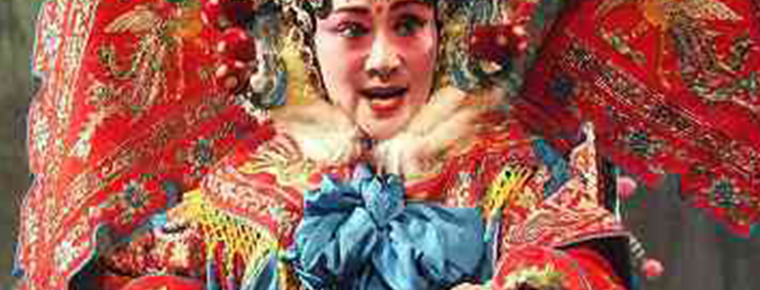
-
Zhashlenbu Temple Scenic Spot in Shigaze
Zashrunbu Temple means "auspicious Xumi Temple". Its full name is "Zashrunbu Baijid Qinqu Tangkelenan Bajawalin". It means "auspicious must gather in Fushu to win over Fangzho.
Views: 225 Time 2018-12-12 -
Sannong Expo Park
Shenyang Sannong Expo Park is located in the south of Daliutun Town, Xinmin City, Liaoning Province. It is 15 kilometers away from Xinmin City and 75 kilometers away from Shenyang City. It was built i.
Views: 119 Time 2018-12-18 -
Shanghai Baoshan International Folk Art Exhibition Hall
Shanghai Baoshan International Folk Art Exhibition Hall is the first exhibition, research and protection of intangible cultural heritage in Shanghai constructed by Shanghai University in cooperation w.
Views: 154 Time 2018-12-19 -
Huizhou folk songs
Huizhou folk song is an ancient traditional folk art in Huizhou area. It is rich in content and diverse in genres, including chants, folk songs, minors, Buddhist and Taoist songs,.
Views: 419 Time 2019-05-04 -
Traveling Books in Ningbo
Ningbo Walking Book, originally known as "Lotus Document" or "Plough Document", is one of the traditional local operas in Ningbo, Zhejiang Province. Sing in Ningbo dialect. Ningbo .
Views: 212 Time 2019-06-08 -
Qianjiang Folk Songs
Qianjiang folk song is a traditional folk song in Hubei Province. Popular in Qianjiang City, folk songs created by local working people in their work, life and customs. Its rich content,.
Views: 293 Time 2019-06-10 -
Soviet Opera
Su Opera is a combination of Huagu Tanhuang, Nanci and Kunqu Opera. It is popular in the urban and rural areas of southern Jiangsu and Northern Zhejiang. Its predecessor, Sutan, was originally called .
Views: 72 Time 2019-06-16 -
Raise the Pavilion
Lifting the pavilion, also known as the pavilion, is a unique traditional folk dance that integrates historical stories, myths and legends, and integrates painting, opera, tie-up, paper sculpture, acr.
Views: 138 Time 2019-06-18 -
Yuhang Rolling Lamp
Yuhang Rolling Lamp is a kind of Han folk dance which combines athletics, martial arts and dance. It is made of bamboo pieces of large sphere as the main props, in the center of the sphere of bamboo k.
Views: 148 Time 2019-07-14 -
Southwest University of Science and Technology
Southwest University of Science and Technology is located in Mianyang City, Sichuan Province. The school is a university built jointly by the Sichuan Provincial People's Government and the Ministry of.
Views: 210 Time 2019-08-31 -
Hu Bilie Kublai Khan
Kublai was from 1215 to 1294, namely, Yuan Shi Zu, Mongolian, statesman and strategist. regent Torre Fourth sons, Yuan Xian Zong Mongo Brother. Yeke Mongghol Ulus The last generation of Khan, also at .
Views: 146 Time 2019-09-07 -
Suining science and technology
In 2019, Suining achieved a high-tech industry revenue of 50.2 billion yuan, an increase of 22.4%, and social R & D investment reached 860 million yuan, a year-on-year increase of 37.3%, and the investment intensity reached 0.7%. In the whole year,.
Views: 326 Time 2020-12-16
